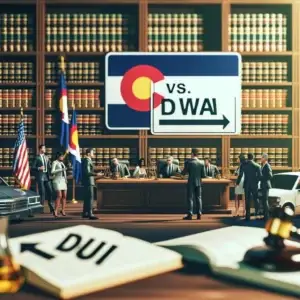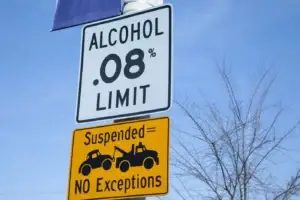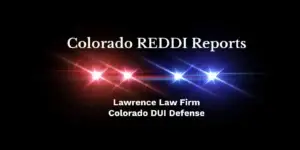A typical criminal defense client will focus on the impact of a conviction. A DV conviction can result in jail time, fines, and probation. However, an allegation alone can cause serious impacts to a criminal defendant.
Most criminal cases will come with protection orders. These are orders that are imposed in any criminal case. A domestic violence case will come with an order that includes very specific provisions.
It is important to speak with a domestic violence defense attorney that handles DV cases. They will understand the complexities of a domestic violence protection order and how they are modified.
What is Domestic violence under Colorado Law?
Unlike other jurisdictions, Colorado does not have a specific crime of domestic violence. Instead, it is a sentence enhance. The domestic violence tag can be applied to any criminal offense that meets the definition of domestic violence.
Domestic violence means an act or threatened act of violence. The act must be upon a person with whom the actor is involved in an intimate relationship. It also includes past intimate relationships.
Domestic violence can be physical abuse or emotional abuse. DV can also be sexual abuse. Allegations of sexual abuse will result in sexual assault allegations.
Domestic violence also includes any other crime against a person or property. Property includes animals. Criminal offenses classified as municipal ordinance violations are included as acts of domestic violence.
DV also includes any criminal offense used as a method of coercion, control, punishment, or intimidation. It also includes acts of revenge directed against an intimate partner.
In short, domestic violence does not have to be physical violence.
What Colorado Law requires a protection order?
Colorado Revised Statue 18-1-1001 requires a protection order to be issued in any case involving a title 18 violation. Title 18 defines all of Colorado’s criminal offenses, except traffic offense. While Title 18 is only used in County and District Courts, most municipal courts will also impose protect orders.
Courts throughout Colorado will use a uniform order that contains the same conditions. The general terms will prohibit a defendant from contacting a victim. A dv protection order can permit contact, but the defendant will not be able to harass or intimidate the victims.
If alcohol was involved in the underlying offense, a defendant will be prohibited from consuming or possessing alcohol. The protect order cannot require a defendant to submit to monitored sobriety. However, the court may have other ways to require testing.
In domestic violence cases, a defendant will not be permitted to own or possess any firearms or ammunition. The Court will require the defendant to relinquish any firearms in the defendant’s possession. This would also include any weapons the defendant has access to.
Finally, the defendant may be required to vacate the residence of the alleged victim. This provision of a DV order can require a defendant to leave their home. This happens in cases where the victim resides with the defendant.
A protection order will have a major impact on a defendant’s life. Even if the case involves false allegations, the short-term impact will still be hard.
How does a Protection Order Affect a Domestic Violence Case in Colorado?
As stated above, domestic violence can be any criminal offense in Colorado. This includes municipal ordinance violations. Police Officers are also required to make an arrest if they are called to a domestic dispute.
The first impact of a domestic protection order is on the family’s budget. The defendant will have to leave their home. Bills and mortgage will still be owed. A defendant will be required to pay for a second home or hotel during the pendency of the case.
The second impact of a protection order is on the relationship. A defendant will not be allowed to speak with their significant other. This will be any communication.
Sometimes intimate partners have children and financial concerns that need to be addressed. DV defendants will not be permitted to work on their relationship. This is problematic because counseling and treatment is often crucial in these types of cases.
Finally, a defendant will be required to relinquish any firearms in their possession or control. Relinquishment can happen by giving the weapons to the police or firearm dealer. Colorado law also permits other legal transfers.
How long do protection orders last in Criminal Cases?
The protection order will be in force throughout the pendency of the case. This includes any punishment or probationary sentence. A typical probationary sentence will be 12 to 18 months for a misdemeanor offense. A felony offense can be longer.
Protection orders can be modified. The request can come from the defendant, the victim, or the prosecution. While the defendant can make the request, a court will likely only care about the victim’s position on the request.
In deciding on the modification, the Court will look at the facts of the case and criminal history of the defendant. Courts will want to see a “cooling off” period. This means the court will want to see time pass between the alleged offense and modification. If the defendant is submitting to monitored sobriety, the court will also expect the defendant to clean on all their tests.
The Court is focused on the safety of the victim. If a modification is requested, it is important to show the court that there are no safety issues. Each court in the state of Colorado is different and handles modification requests differently.
A domestic violence lawyers can be extremely helpful. They will be familiar with the judges and jurisdictions. This will help to get the quickest modification possible.
What Happens if you Violate a protection order?
The protection order can be violated by any communication or contact. It can even be a violation if the victim-initiated contact. A defendant responding to a victim’s communication will be a violation.
Violation of a protection order is a separate criminal offense. This charge can be an additional domestic violence offense. A violation of a protection order can result in jail and probation.
These punishments must run consecutive to any other punishment. This means they will be imposed after the original sentence is served.
If the defendant’s original criminal case is pending, the defendant can also be found to violate his bond. If the prosecution alleges bond is violated, the defendant will be arrested and required to post a new bond.
SPEAK WITH A DOMESTIC VIOLENCE DEFENSE LAWYER
Because of the consequences of a protection order, it is important to have an aggressive and competent domestic violence attorney. As mentioned above, these types of cases could impact your gun rights or custody rights.
Our firm routinely represents individuals accused of criminal offense. We are open during regular business hours, but we will stay late or be available on weekends if necessary. Schedule a free consultation.
We are ready, willing and able to discuss your case with you. Our firm defends against domestic violence charges on a regular basis. We handle cases in Denver, Aurora, Arapahoe County, Adams County or any court in the State of Colorado.
Contact our DV Attorney today.





